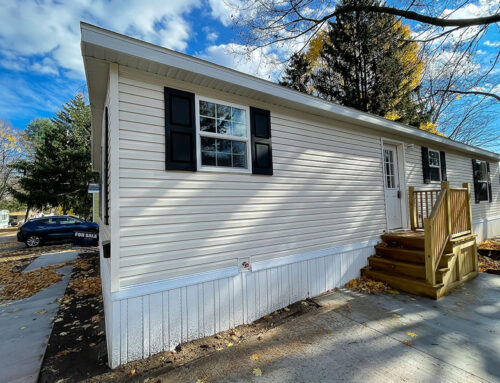I attended a Penn State Football game with my old college buddies last week and, as usual, we got to bantering back and forth about work. We’ve been heckling Lawrence for a year or so because he’s so bored at his job that it’s making him boring, too. But that day, he put us in our place. He announced that he intended to make a career change and start a career in real estate investing, like me. I have to say, I was pretty taken aback by this but, in the spirit of helping out an old friend, I wanted to let him in on the pros and cons of flipping houses in Pennsylvania.
You don’t have to hold a Master’s degree in finance like Lawrence to make well-informed investing decisions, but you do need to be willing to do some research and learn the local market. There’s opportunity in every market, if you have the right strategy for acquiring the most promising properties. But, you may have to change yours up, depending on where in Pennsylvania you want to invest. I told my friend that if you understand what you are getting into and are willing to put in the elbow grease, you can make a good business out of flipping houses in here.
The Pros and Cons of Flipping Houses in Pennsylvania
There is never a completely ideal market scenario, and Pennsylvania does have it’s pros and cons just like any other state. However, if you take the time to learn about the opportunities and challenges here, you will be better positioned than most beginning investors. Let’s start with the positives that I shared with Lawrence.
Pros:
- Plenty to Choose From. Pennsylvania has one of the highest rates of foreclosures in the nation and Pittsburgh, in particular, has been hard hit this past year. We all know that buying a house in foreclosure can be a long, drawn-out hassle that’s best avoided. But, behind all those foreclosures is a significant population of homeowners who may be in financial distress and need to sell their homes quickly. So, if you have a good lead generation system to approach distressed homeowners before a foreclosure happens, you can potentially get a great investment deal on an off-market property.
- Easier Sales. If you keep tabs on the local market like I do, you’ll already know that the number of active listings has decreased since this time last year and, in correlation, home prices are edging upward. A constrained inventory of homes on the market and rising home prices mean that your rehabbed house probably won’t sit on the market long. And, you’re more likely to get a nice price.
- Potential for Strong ROI. You read that right: Pennsylvania holds some of the highest potential for solid returns when selling your rehabbed investment houses. Four of the top five cities with the largest ROI for home flipping were located in Pennsylvania, according to Attom Data Solutions. Among 174 metro areas with a population of at least 200,000 and at least 100 home flips, those with the highest average gross ROI were Scranton (168.2%), Pittsburgh (145.5%), Philadelphia (115.7 %), and Erie (114.1%). Are you ready to join them?
When I finished telling Lawrence about the real estate investing opportunities in Pennsylvania, that tired look on his face faded fast. But, I also had to clue him into the potential downsides. Let me share them with you too.
Cons:
- Seasonality. Unlike California or Florida, if you are investing in Pennsylvania you’ll need to consider mother nature when purchasing a property. If you don’t stay on track and get the rehab completed before winter sets in, you’ll have a significantly lower chance of selling the property or getting the price you hoped for. Prices also tend to peak around May and trail off from there. Be sure you have a timely contractor working on your rehab so you don’t get caught in the cold.
- Unanticipated Expenses. You always need to be prepared for the unexpected when doing a rehab—and Pennsylvania poses some special challenges. For instance, an investor I knew in Pennsylvania, bought a property he expected to flip pretty quickly but when it came time to sell, the homebuyer’s inspections found high levels of radon. He had to pay quite a bit to have the problem mitigated and that really pinched his wallet. This isn’t a small issue—roughly 40 percent of Pennsylvania homes have radon levels above EPA’s action guideline, according to the Pennsylvania Department of Environmental Protection. If you don’t look for this problem from the get-go and factor the expense of mitigation into your overall renovation budget, you could be underwater when is all said and done.
- Market Uncertainty. We all understand that uncertainty just comes with the territory of investing in real estate. One thing to keep an eye on is the availability of housing inventory. Over the last year, both Philadelphia and Pittsburgh experienced a double-digit decrease in the number of homes for sale. While the current constrained inventory in Pennsylvania has led to a great market for selling rehabbed investment properties right now, there is no guarantee that this seller’s market will continue. If the new home listings continue to rise, for instance, we could see wind change in the market.
If you decided to start flipping houses in Pennsylvania, here’s a word of caution. It is mission-critical to protect your investment property with the right coverage. Pennsylvania has a unique terrain and sinkholes are not unheard of. However, the construction of more natural gas pipelines may be increasing the incidence of them. In Chester County recently, an entire neighborhood is being affected by sinkholes—some the size of a swimming pool—caused by a pipeline project. In fact, I know an unfortunate investor who learned the hard way that property insurance doesn’t naturally cover the damage from sinkholes and he took a significant financial hit as a result. Never again will he neglect taking the time to get the right insurance for an investment property—and you shouldn’t either.
Is Flipping Property in Pennsylvania Worth It?
In the end, Lawrence knew the answer to whether flipping houses in Pennsylvania is worth it and that is, “Absolutely!” There was one question left in his mind, though: How do you find investing opportunities in Pennsylvania? I used many different property investor lead generation strategies with varied success—until I started my own independently owned and operated HomeVestors® franchise. The nationally-known and trusted “We Buy Ugly Houses®” marketing campaign has been one of the most effective ways for me to find quality investment opportunities. I recommend becoming a HomeVestors® franchisee to my buddies like Lawrence who are interested in real estate investing, and to you, too.
If you’d like to find out how you can gain access to some of the best tools and resources available for flipping houses in Pennsylvania, Contact HomeVestors® to learn more.
Each franchise office is independently owned and operated.
Contact
"*" indicates required fields





